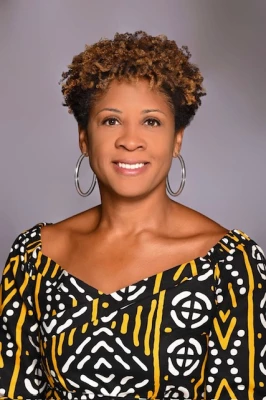By Gail McIntyre, CPA, CGMA and Keeley Hines, CPA
Practicing in the government and municipality industry sector requires a high level of technical expertise and an acumen for a host of accounting and auditing standards that stretch beyond the Financial Accounting Standards Board (FASB) and U.S. Generally Accepted Auditing Standards.
GASB
For one, the practitioner must be qualified to perform audit and attest engagements in accordance with Government Auditing Standards, and have the resources available to continue to meet the professional standards that come with said work. Professional standards are continually evolving to keep up with today’s business environment and the requirements outlined in the 2018 Government Auditing Standards (Yellow Book) www.gao.gov are a testament to the density of regulatory guidance which one must be familiar and in compliance with. From an accounting perspective, the Government Accounting Standards Board (GASB) is the go-to body of standards and it too is complicated and constantly evolving. Practitioners seeking additional resources often turn to the Governmental Audit Quality Center GAQC (AICPA) to stay abreast of technical developments.
Education
Education is just one of the often tricky requirements. Although continuing professional education (CPE) is required for all CPAs and requirements may vary from state to state, a practitioner must comply with the more rigorous CPE requirements as part of Government Auditing Standards. With this often comes a need to obtain more hours and courses concentrated in government subject areas than CPAs who do not practice in this area. It is also important to note that the education requirements extend to all members of the engagement team and the aptitude is necessary prior to engaging in the work.
Furthermore, as part of the Yellow Book standards, practitioners must maintain a system of quality control that includes a process for monitoring quality and a practitioner must undergo and obtain an external peer review report on a triennial basis. The review process is robust, and includes evaluation of the practitioner’s quality control system as well as the quality of audit and attest engagement work papers, reports and communications with those charged with governance. Practitioners seeking a qualified reviewer may consult the Peer Review Public File at www.aicpa.org/forthepublic/peerreviewpublicfile.
As part of the aforementioned system of quality control, the practitioner must develop procedures for accepting new clients and evaluating and continuing to engage with existing clients. Required elements to consider include, but are not limited to, whether there are components to the financial statements and whether the practitioner qualifies as a group auditor. In addition, the practitioner must ensure that management is willing and able to accept responsibility for the preparation of financial statements in accordance with Generally Accepted Accounting Principles (GAAP), and whether management understands their obligations as it relates to establishing a sound internal control environment. The practitioner must also consider whether they are qualified and whether the engagement will necessitate the use of an audit specialist. Each engagement also mandates that independence exist in fact and in appearance, and audit documentation is retained to reflect this conclusion.
Independence
When assessing the independence from the potential client, Government Auditing Standards require additional consideration beyond U.S. Generally Accepted Auditing Standards. For instance when threats to independence occur as a result of the practitioner performing non-attest services, the practitioner is required to identify those threats, and identify and document a member of management and/or those charged with governance with suitable skills, knowledge and expertise who is able and willing to accept responsibility for those non-attest services. Furthermore, when threats are deemed significant, the practitioner must implement safeguards over the threats to ensure independence is not hindered. These safeguards must be actions taken by the practitioner, such as requiring a qualified CPA who is not a member of the engagement team to review the applicable financial statements and/or work papers, or engaging a CPA from another firm to provide such review.
Before entering the government and municipal arena, CPAs should understand that a plan to dabble in the industry is fraught with a high degree of risk. Many firms do not adequately consider this aspect of the service sector to their detriment in terms of reputation and sometimes livelihood. To successfully practice in this sector of public accounting, industry-specific expertise is critical, and moreover required under our professional standards.
As with most initiatives, a thorough understanding the industry and the necessary investment are the first steps in the journey.
=========
Keeley Hines is a principal in The Bonadio Group’s Government Division. She has 15 years’ experience providing audit and accounting services to municipalities, public authorities, school districts and other exempt organizations. Gail McIntyre is a Quality Assurance Partner in The Bonadio Group’s Professional Excellence Division, focused on financial reporting, professional development and risk management. Gail’s industry experience includes exempt organizations, municipalities, employee benefit plans and compliance. The Bonadio Group is a nationally ranked Top 40 CPA firm delivering integrated financial and consulting services to a diverse range of organizations – Private sector, public entities, exempt organizations and financial institutions.
Thanks for reading CPA Practice Advisor!
Subscribe Already registered? Log In
Need more information? Read the FAQs




